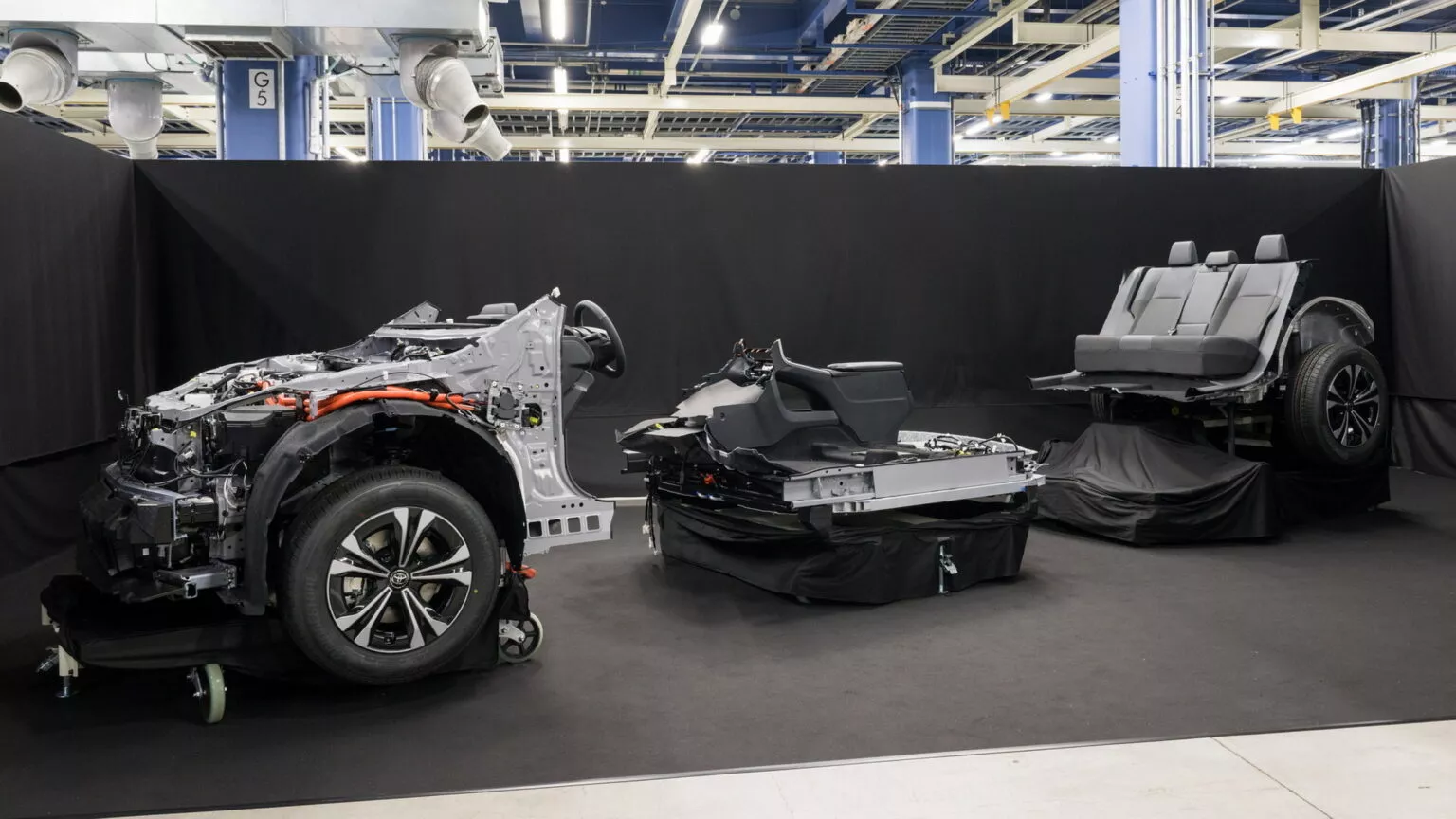Toyota, known for its cautious approach to electric vehicles (EVs), has recently demonstrated its own gigacasting technology at its Myochi plant in Japan. This move comes as the automaker, historically slow to embrace electric mobility, announced plans to manufacture 3.5 million EVs annually by 2030. Toyota’s decision to develop its gigapress technology is in line with the growing industry trend towards producing larger vehicle components with fewer parts.
The gigacasting process was showcased as molten aluminum was poured into a mold, resulting in a single piece that forms the entire rear third of a vehicle chassis. Traditionally, creating this portion of a car required 86 parts, 33 steps, and several hours of production time. However, with Toyota’s gigacasting machinery, the same task can be accomplished in just about three minutes.
Toyota initiated its gigacasting journey in September 2022, and since then, the technology has undergone refinements to enhance efficiency and adaptability for various vehicle models. The company’s ultimate aim is to achieve 20 percent higher productivity compared to its competitors through the utilization of this innovative casting technology. This breakthrough will be integrated into the manufacturing process for both the front and rear sections of an upcoming electric vehicle scheduled for release in 2026.
In addition to gigacasting, Toyota is also focusing on improving the overall efficiency of its factories. Given that EV production requires more factory space compared to traditional internal combustion vehicles, Toyota aims to minimize its reliance on conveyor belts. To achieve this, the company plans to leverage advanced technology and the indoor operability of EVs. Partially assembled vehicles will move at a speed of 0.1 meters per second (0.2 mph) to meet autonomous robots capable of lifting and transporting vehicles to other factory areas.
Toyota’s Chief Production Officer, Kazuaki Shingo, acknowledged the need to learn from specialized EV manufacturers like Tesla, which have the flexibility to produce a limited number of models. Toyota is determined to rise to the challenge of EV production by exploring new options and technologies to remain competitive in the evolving automotive landscape.

